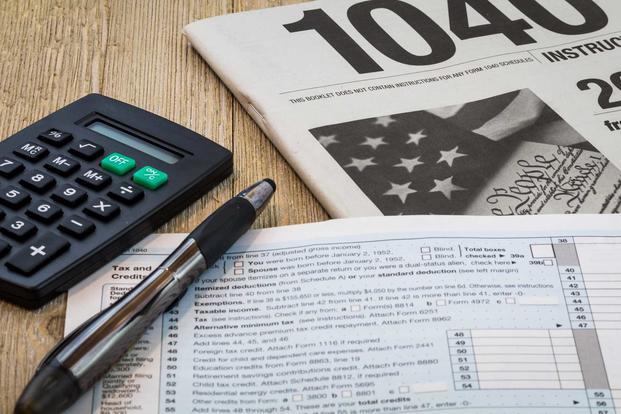Did you do a Personally Procured Move, also known as a PPM or DITY move, in 2020? If so, be sure that you have the special travel W-2 when you complete your 2020 income tax return.
Many military families are eager to file their tax returns when the IRS opens the filing season on Feb. 12, 2021, especially when they are expecting a refund. Having this special W-2 is an important part of having an accurate income tax return filing.
Reimbursements for PPM moves are taxable income to the military service member. As such, the Defense Finance and Accounting Service issues a W-2 for that money. It's found on MyPay, in the tax document section, under Travel/Miscellaneous Tax Statement (W-2).
Thankfully, that money isn't always taxable, or at least not all of it. Active-duty military service members moving on Permanent Change of Station orders are the only group of U.S. taxpayers who are still eligible to deduct moving expenses from their income tax calculations.
You'll use the information on the travel W-2 to calculate your deductible moving expenses on IRS Form 3903, Moving Expenses. The IRS has pretty specific rules on which moving expenses can be deducted. If you're unsure what you can include in your calculations, consider getting free assistance from your installation's Volunteer Income Tax Assistance (VITA) program, or get advice from the Military OneSource MilTax program.
If you've been reimbursed more than your actual expenses, you must include the excess as income on Line 1 of your 1040 tax form. This may increase your tax liability for the year, which means you'll either get a smaller refund or owe a larger payment.
If qualified service members moving on PCS orders have actual moving expenses that exceed their reimbursement, they can deduct the excess costs on Line 13 of the 1040 tax form. This may decrease your tax liability for the year, which means you'll either get a larger refund or owe a smaller payment.
Either way, it's important that you report the income listed on your travel W-2. It has been reported to the IRS, and not showing it on your tax return may cause it to be flagged for review or even audit. Plus, if your expenses exceed your reimbursement, you want to get the benefit of that moving expense deduction.
If you don't know that it exists, it's easy to miss the travel W-2. The first time I saw one, I had no idea what it was or what to do with it. We ended up just adding it to our taxable income and paying full taxes on it. Be smarter than me, and calculate your actual moving expenses so that your tax return will be as accurate as possible, and you won't have to pay taxes on the full amount of your reimbursement.
Get the Latest Financial Tips
Whether you're trying to balance your budget, build up your credit, select a good life insurance program or are gearing up for a home purchase, Military.com has you covered. Subscribe to Military.com and get the latest military benefit updates and tips delivered straight to your inbox.











